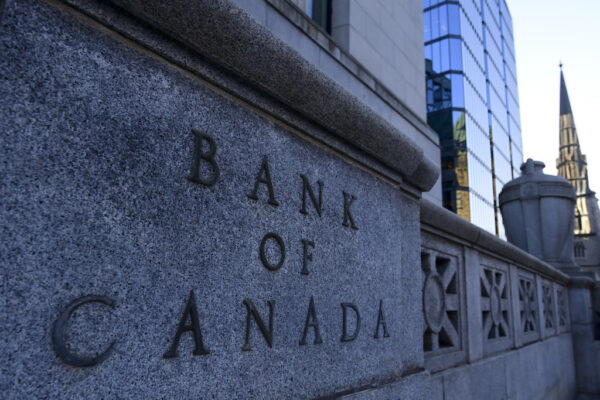Mortgage Rate Canada: An In-Depth Look at Current Trends and Key Factors
Mortgage rates in Canada have a significant impact on homebuyers, homeowners, and the overall economy. As of 2025, understanding mortgage rates and their fluctuations is essential for anyone considering purchasing a home or refinancing an existing mortgage. In this article, we’ll explore what mortgage rates are, the factors that influence them, current trends in Canada, and tips for managing your mortgage effectively.
What Are Mortgage Rates
A mortgage rate is the interest rate charged on a mortgage loan, typically expressed as an annual percentage rate (APR). This rate determines the cost of borrowing money to purchase a home and plays a critical role in determining monthly mortgage payments. Mortgages in Canada can either be fixed-rate or variable-rate, and the type you choose can significantly impact the cost of your loan over time.
Fixed-rate mortgages have an interest rate that remains constant throughout the term of the loan, providing stability in monthly payments.
Variable-rate mortgages have an interest rate that can fluctuate based on market conditions, leading to changes in monthly payments.
Mortgage rates are influenced by various factors, including the Bank of Canada’s overnight lending rate, inflation, economic growth, and the broader global financial environment.
Key Factors Influencing Mortgage Rates in Canada
Bank of Canada’s Key Interest Rate
The Bank of Canada (BoC) sets the overnight rate, which is the interest rate that commercial banks charge each other for overnight loans. This rate has a direct effect on mortgage rates in Canada. When the BoC raises or lowers its key interest rate, commercial banks typically follow suit by adjusting their mortgage rates.
Inflation and Economic Conditions
Inflation is a major determinant of interest rates. When inflation is high, the Bank of Canada may increase interest rates to curb rising prices and stabilize the economy. Conversely, in times of low inflation, the BoC may lower interest rates to stimulate economic activity. Economic growth, unemployment rates, and other macroeconomic indicators also play a role in shaping interest rate decisions.
Global Economic Events
Global economic conditions, such as recessions or financial crises, can influence mortgage rates in Canada. For instance, a global downturn can lead to a decrease in borrowing costs worldwide, affecting Canadian mortgage rates.
Housing Market Conditions
The housing market also impacts mortgage rates. In times of high demand for housing, lenders may raise interest rates to slow down borrowing, while a sluggish housing market may prompt banks to lower rates to encourage home purchases.
Current Mortgage Rate Trends in Canada (2025)
As of early 2025, mortgage rates in Canada have been relatively high compared to historical lows seen in recent years. The Bank of Canada raised its key interest rate several times in 2023 and 2024 to combat inflation, leading to an increase in mortgage rates. Fixed-rate mortgages for terms of 5 years or more have seen rates above 5%, while variable rates tend to be somewhat lower but subject to change based on the BoC’s actions.
Mortgage rates in Canada are expected to remain elevated for the near future, with potential for gradual decreases if inflation continues to stabilize and the economy shows signs of slowing down. Homebuyers should be prepared for higher monthly payments if they are entering the housing market during this period.
Tips for Managing Your Mortgage in a High-Rate Environment
Consider a Fixed-Rate Mortgage In a rising-rate environment, a fixed-rate mortgage offers predictable payments over the term of the loan, providing protection against future rate hikes. Although fixed rates may be higher than variable rates, they offer peace of mind for long-term homeowners.
Shop Around for the Best Rate Not all lenders offer the same mortgage rates. It’s important to shop around and compare offers from different banks, credit unions, and mortgage brokers to find the best possible rate for your financial situation.
Increase Your Down Payment A larger down payment reduces the amount you need to borrow and can help you secure a more favorable mortgage rate. If possible, consider saving up for a larger down payment to reduce your monthly mortgage payments and the overall cost of your mortgage.
Pay Down Debt Lenders assess your debt-to-income ratio when determining your eligibility for a mortgage. Paying down high-interest debts before applying for a mortgage can improve your financial profile and help you qualify for a better rate.
Monitor the Market Keep an eye on interest rate trends and economic indicators to make informed decisions about your mortgage. If rates begin to decline, you may want to consider refinancing your mortgage to take advantage of lower borrowing costs.
FAQs
What Are Mortgage Rates in Canada?
Mortgage rates in Canada refer to the interest rate charged by lenders for home loans. These rates determine the cost of borrowing money to purchase a home or refinance an existing mortgage. Rates can either be fixed (staying the same for the entire term) or variable (changing based on the market).
What is the Difference Between Fixed and Variable Mortgage Rates?
Fixed-Rate Mortgages: The interest rate remains the same throughout the mortgage term. This offers stability but may come with a higher initial rate compared to variable rates.
Variable-Rate Mortgages: The interest rate fluctuates based on the Bank of Canada’s benchmark rate. While this can lead to lower rates initially, payments can increase if rates rise.
How Can I Get the Best Mortgage Rate in Canada?
To secure the best mortgage rate:
Improve Your Credit Score: Lenders offer better rates to borrowers with higher credit scores.
Save for a Larger Down Payment: A larger down payment can reduce the loan-to-value ratio and potentially lower your rate.
Shop Around: Compare mortgage rates from multiple lenders, including banks, credit unions, and brokers, to find the best deal.
What is the Current Mortgage Rate in Canada?
As of early 2025, mortgage rates in Canada have risen due to several interest rate hikes by the Bank of Canada in recent years. The average rate for a 5-year fixed mortgage is typically above 5%, with variable rates slightly lower. However, rates fluctuate regularly, so it’s important to check current rates when applying for a mortgage.
To Conclude
Understanding mortgage rates in Canada is crucial for anyone looking to buy a home or manage an existing mortgage. Rates are influenced by a wide range of factors, from the Bank of Canada’s key interest rate to global economic conditions. By staying informed about current trends and considering strategies to manage your mortgage, you can make smarter financial decisions that will benefit you in the long run.
To read more, click here













